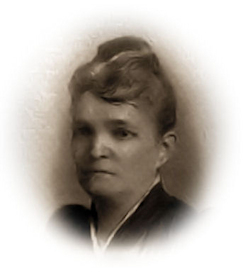July 3d, 1863.—H. was going to headquarters for the requisite pass, and he saw General Pemberton crawling out of a cave, for the shelling has been as hot as ever. He got the pass, but did not act with his usual caution, for the boat he secured was a miserable, leaky one—a mere trough. Leaving Martha in charge, we went to the river, had our trunks put in the boat, and embarked; but the boat became utterly unmanageable, and began to fill with water rapidly. H. saw that we could not cross it and turned to come back; yet in spite of that the pickets at the battery fired on us. H. raised the white flag he had, yet they fired again, and I gave a cry of horror that none of these dreadful things had wrung from me. I thought H. was struck. When we landed H. showed the pass, and said that the officer had told him the battery would be notified we were to cross. The officer apologized and said they were not notified. He furnished a cart to get us home, and to-day we are down in the cellar again, shells flying as thick as ever. Provisions are so nearly gone, except the hogshead of sugar, that a few more days will bring us to starvation indeed. Martha says rats are hanging dressed in the market for sale with mule meat,—there is nothing else. The officer at the battery told me he had eaten one yesterday. We have tried to leave this Tophet1 and failed, and if the siege continues I must summon that higher kind of courage—moral bravery—to subdue my fears of possible mutilation.
- hell
Note: To protect Mrs. Miller’s job as a teacher in post-civil war New Orleans, her diary was published anonymously, edited by G. W. Cable, names were changed and initials were generally used instead of full names—and even the initials differed from the real person’s initials. (Read Dora Richards Miller’s biographical sketch.)
